Mugabe's prosecution and punishment!
By Admore Tshuma
http://www.newzimbabwe.com/pages/opinion222.14957.html
THE
After clinging to power for nearly three decades, Mugabe has made sure that he wholly paralyses the economy of a country once regarded as the brightest beacon of hope in southern Africa.
Today, Zimbabwe has been relegated to a begging bowl of southern Africa and according to latest World Bank figures, Zimbabweans now have the shortest life-span the world over. This is not political rhetoric but a product of a reliable scientific measurement.
The country is deep in poverty, and Mugabe is responsible for the severe deprivation of human basic needs, including food, safe drinking water, sanitation facilities, health, shelter, education and information. This is the exact and universally agreed definition of absolute poverty -- a condition which is more prevalent in Zimbabwe today.
I wish to argue that Mugabe is prosecutable and chargeable with systematic violations of economic, social and cultural rights which rise to the level of serious crime under international law as understood by the Princeton Principles of Universal Jurisdiction, interpreted in light of Article 7 of the Rome Statute of the International Criminal Court.
With half of Zimbabwe's population facing grinding poverty and millions more having emigrated to other countries where some live miserably as illegal immigrants, just eke out a decent living, the systematic character of the violation of economic, social and cultural rights by Mugabe's regime have assumed a genocidal dimension.
How Mugabe created poverty in Zimbabwe is perhaps the simplest question that does not need academic research.
Mugabe is responsible for political repression, killing and deliberately inflicting conditions of life calculated to bring about physical destruction in whole or in part, first for the vulnerable group, the Ndebeles and then Whites and then everyone.
This is against the background that we now live in a globalised village - what a political leader says or does in Harare makes a chain reaction all the way to Washington DC. It's the New World Order and it's unchangeable.
One might want to know, as human memory is very short, who are the actual victims of Mugabe's murderous regime, the answer is first they were the Ndebeles.then Whites..later everyone. Mugabe has always assumed that Ndebeles were by definition enemies and opponents of his regime. Remember, there was a time in the late 1980s when Mugabe tried to establish a one party state in Zimbabwe. He saw Ndebeles as a hindrance to his plans of a one-party state, hence he attempted to exterminate them.
This "genocide" was both ideological and national in character, for in effect, it sought to annihilate an entire political spectrum from Zimbabwe's public life by persecuting elite members of the Ndebele society.
There is no doubt that Mugabe's regime should be held accountable for the unprecedented levels of poverty, or what we would call social genocide. In my view, his crime stems from a deliberate reduction of the living standards of the country's poorest and working people, because of intentionally redistributing wealth upwards and reconcentrating wealth among his cronies. Using this theory of social genocides, one can authoritatively conclude that Mugabe's enemies (and victims) are the majority of Zimbabweans.
In addition, Mugabe's regime can be pursued under the 1986 Limburg Principles on the Implementation of the International Covenant on Economics, Social, and cultural Rights, echoed in part in the language quoted above from 1993 Vienna Declaration, the 1997 Maastricht Guidelines on Violations of Economic, Social and Cultural Rights, the evolving General Comments of the UN Committee on Economic, Social and Cultural Rights and the findings of Special Rapporteurs on related topics. Such principles, guidelines and comments are all essential elements of the emerging normative framework of international poverty law.
In the Maastricht Guidelines (1997), this emphasis is further elaborated: "It is now undisputed that all human rights are indivisible, interdependent and interrelated. Therefore, states are as responsible for violations of economic, social, and cultural rights as they are for violations of civil and political rights.
Violations of the Covenant occur when a state fails to satisfy what the committee on Economic, Social and Cultural Rights has referred to as a minimum core obligation to ensure the satisfaction of, at the very least, minimum essential levels of each of the rights, thus a state Party in which any significant number of individuals is deprived of essential foodstuffs, of essential primary health care, of basic shelter and housing, or of the most basic forms of education, is pram facie, violating the Covenant.
What is more depressing is that even if Mugabe goes today, his legacy will continue to haunt Zimbabwe for many years to come. It manifests itself plainly in the form of hostility between Zimbabwe's two major tribes, Shona and Ndebele.
Because of Mugabe's earlier preachings of tribalism, Zimbabwe is today a more divided country than it was before independence in April 1980. This is evidenced by the fact that when one visits football grounds, internet chart rooms and so forth, there is a lot of tribal slurs going on.
These are some of the behavioural attitudes which our society has unwittingly inherited from Mugabe's quarrelsome brand of politics. Remember if Mugabe had not resorted to planting seeds of tribalism he would have lost the 1980 elections to Joshua Nkomo.
From independence, Mugabe's vampiric government lacked particularly a basic attribute of all laws, and that is the simple ability to provide rational guidance for exemplary conduct. For Zimbabwe to flourish and move on as an egalitarian society we need our version of the Truth and Reconciliation Commission whose major task would be to investigate the Mugabe regime crimes in order to reconcile and unite a deeply divided society.
What is more glaring is the deliberate inequality Mugabe tried to create between Ndebele and Shona - today Harare and Mashonaland are regarded by an average person from Matabeleland as upper class and privileged against the background of numerous skyscrapers and glassy buildings in Harare and well-constructed roads while Bulawayo is still reeling from medieval buildings put up by the Smith regime in the 1970s.
Perhaps leading British social scientist Prof Peter Townsend's definition of absolute poverty gives us a better insight of what is happening in Zimbabwe today. Prof Townsend argues in his celebrated work on poverty that individuals, families and groups in the population can be said to be in poverty when they lack the resources to obtain the types of diet, participate in the activities and have the living conditions and amenities which are customary, or at least widely encouraged or approved, in the society to which they belong to.
According to the Bulawayo City Council, in the first six months of 2003, up 67 people died in the city as a result of malnutrition. The figure included both children and adults.
Zimbabweans lack many more necessities that are needed for a human being to properly function and participate in his society. Individuals or families whose resources are so small as to exclude them from the minimum acceptable way of life are said to be living in poverty. In the study of poverty and inequality we find that both financial exclusion and debt are associated with low income. Moreover, debt is strongly associated with a range of psychiatric problems.
Mugabe's laws are a deliberate ploy to bring down Matabeleland - salaries are higher in Harare even if people are doing the same job with same qualifications and working for the same company. What seems to be a problem is to be based in Matabeleland. And more daring was the fact that in the 1990's, the Chronicle newspaper which I worked for, earned more revenue for Zimpapers, but still Herald employees in Harare were paid far much higher than Chronicle workers.
When I was still at The Chronicle, firebrand politician Welshman Mabhena once told me that Mugabe has a secret agenda to destroy the Ndebele as a society. Mabhena said Mugabe blames Ndebeles for his miserable, fatherless childhood.
Mabhena said Mugabe's father walked out on the family and left his wife to fend for the off-springs to live with a beautiful woman in Bulawayo's Makokoba suburb, identified as MaTshuma, and has never forgiven the Ndebele for his miserable upbringing. According to Mabhena, Mugabe achieved revenge for his troubled childhood by sending the 5 Brigade to kill the Ndebeles.
For the greater part of my seven years at The Chronicle, I worked with many Shona people, journalists, clerks, messengers etc - most of them, if not all could not even attempt to speak in Ndebele except for those who grew up in Bulawayo. Yet all Ndebele employees at Chronicle did speak fluent Shona. It is not their fault.
Remember, when Mugabe appeared on television in the mid-1980s, he deliberately twisted his tongue, coming up with a horrible accent in an attempt to say a Ndebele word. He was in a deliberate contempt of the Ndebele language. However, Mabhena argues that Mugabe can speak in Ndebele fluently as the two were teachers at Hope Fountain on the outskirts of Bulawayo - implying what Mugabe intended to demonise the Ndebele language and its values, hence no Shona child would envy to speak a demonised language.
I had an opportunity to be among reporters who listened to Mugabe's speech on the funeral of Joshua Nkomo in Bulawayo's Ascot stadium. I can reveal that, on this day he spoke fluent Ndebele without even fumbling. I thought to myself: "Mr President you have finally invoked your Hope Fountain Primary School days".
What I found more interesting is when I visited South Africa recently, I found out that in every street there is a Zimbabwean who happens to be Shona and they all speak in Zulu which is close to Ndebele. The excuse we were given by our fellow employees at Chronicle was that Ndebele was such a difficult language to learn as it involved learning to pronounce cliques omankankane or uxakuxaku. As a head of state Mugabe's hatred of the Ndebele people was never a secret which penetrated deep into the social fabric of society. Even children in Matabeleland know that Mugabe hates Ndebeles so is vice versa in Mashonaland.
Unfortunately, such a behavioural attitude is contagious even among the unborn generation. There is alarming hostility among the two tribes, this hostility turns out to be Mugabe's strength. For example, consider what happened in the run up to the division of the opposition MDC. Under normal circumstances, and in a proper democratic institution, Tsvangirai should have been ostracised for what he did. He called in for a vote and when he lost that vote he decided to use brute force, so what is the difference between Tsvangirai and Mugabe?
W2hen some dissenting voices queried and tried to bring in sanity in the name of democracy, they were simply labelled "dissident Ndebeles", because of that label very few Shona people would support the rebelling Ndebeles.
The purpose of my article is to argue that a leader such as Mugabe who has presided over the world's fastest shrinking economy, thereby, condemning the entire population to poverty is guilty of social genocidal crimes and crimes against humanity which should be prosecutable at the international court of tribunal.
To start with, designing and legislating brainless policies which result in mass poverty is a crime on its own. Apart from the 20 000 Ndebele speaking people of Matabeleland who were massacred by Mugabe's Fifth Brigade, estimates say up to 10 000 people from Matabeleland disappeared and had not been accounted for to date.
Murderous state-sponsored hit squads have been in existence at least since the independence of Zimbabwe in April 1980 and are widely acknowledged to have stirred up much dissident activity in Matabeleland in order to justify the killing of civilians in the region.
There is a school of thought which says the six European tourists killed at Esigodini area allegedly by the dissidents were in fact murdered by Mugabe's murderous hit squads in order to justify the deployment of the Fifth Brigade.
There is no doubt that Mugabe and his government are guilty of crimes against humanity. To some extent, crimes against humanity overlap with genocide and war crimes.
But crimes against humanity are distinguishable from genocide in that they do not require an intent to "destroy in whole or in part" as cited in the Genocide Convention of 1948, but only target a given group and carry out a policy of widespread or systematic violations. Crimes against humanity apply in the context of war and in times of peace as well.
The good thing about it is that no one is immune to prosecution for crimes against humanity - this applies to those who acted on behalf of the state and even the head of the state himself is not immune.
The Geneva Convention, states that if the head of state sends an army to a
troubled area or province, and that army happen to target civilians, the head of state is guilty of war crimes. The Convention goes on to state that, under such circumstances it is the duty of any nation or anyone else to prosecute or the International Criminal Court has a right to indict the head of state with his accomplices.
What makes the Zimbabwe situation more needy is the gruesome killings of people of Matabeleland especially in Tsholotsho, Lupane and Gwanda.
Coming back to the crunch of my paper, the sorry state of the Zimbabwe's economy here does not need us to consult a rocket scientist or a Professor of economics. I'm sure even a young school boy would tell you that Mugabe and his gangsters have messed up, and the destruction of our economy was long expected.
Much of Mugabe's legislations are so capricious in their drafting as well as in their application. Above all, the whole battery of laws makes political dissent a crime. The normal functions of a responsible citizenry becomes the business of the country's jailers. Mugabe's government has increasingly conferred forms of lawless discretion on his functionaries in the civil service, the police and the military. The deployment of the state's resources to inflict random terror and assassination on the state's own citizens.
Poverty levels are unprecedented and Mugabe, like a woman in a polygamous relationship, keeps on churning abuse at George Bush and Tony Blair - guess what, they don't reply back they just shut up.
When a BBC reporter confronted Tony Blair in 2002 at the height of bloody farm invasions, and asked him why he was not engaging Mr Mugabe in talks Mr Blair simply said: "I will not sit in a round table conference with a leader guilty of mass murder. In fact, I will do everything for him to go."
Blair and the whole international community can go a step further than just pushing for Mugabe's exit. He should be brought to account for his murderous reign and sermons of hatred that have divided our beautiful land.
Admore Tshuma is a former Chronicle Chief Reporter now reading for a PhD at the University of Bristol specialising in Global Poverty, Social Justice and Human Rights Law.
He can be contacted on atshuma@hotmail.com
















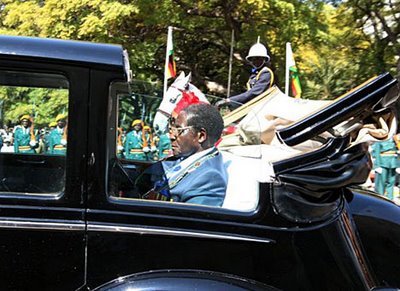

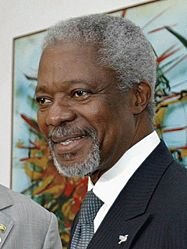

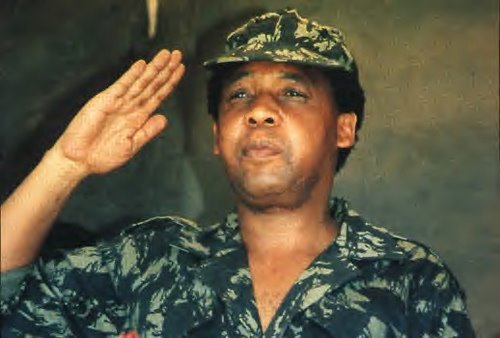

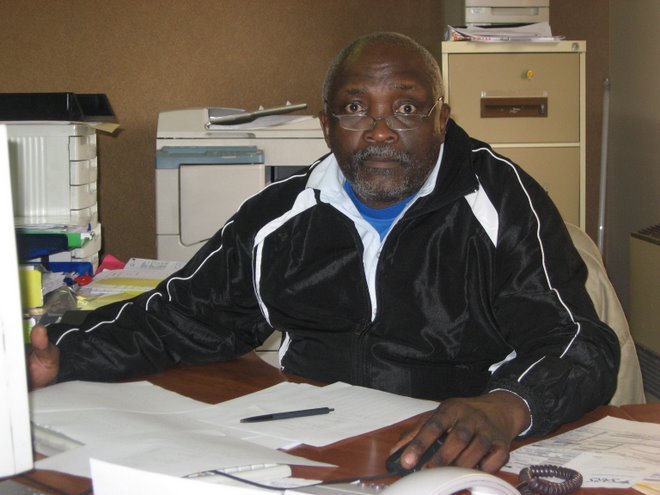
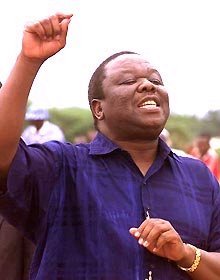
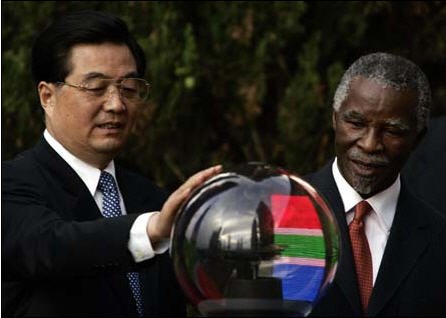





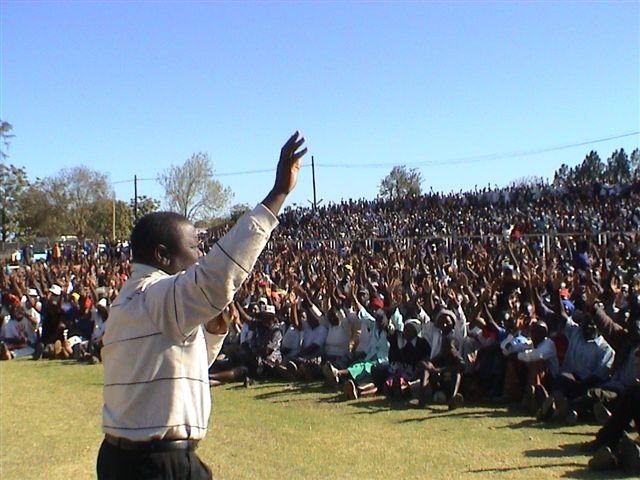


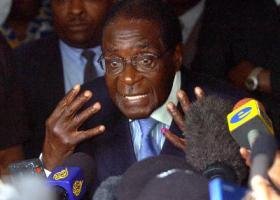

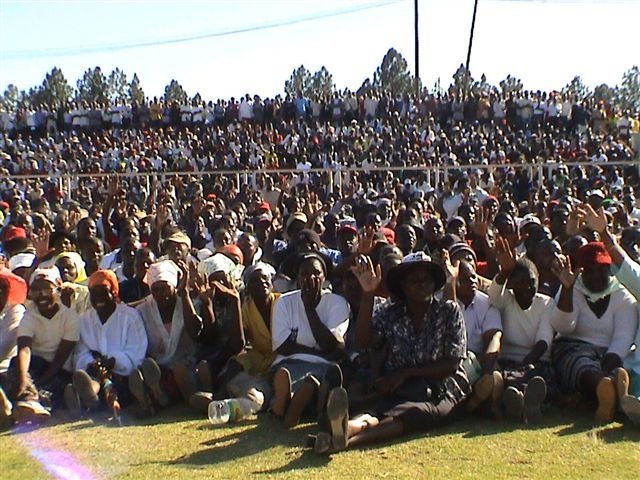
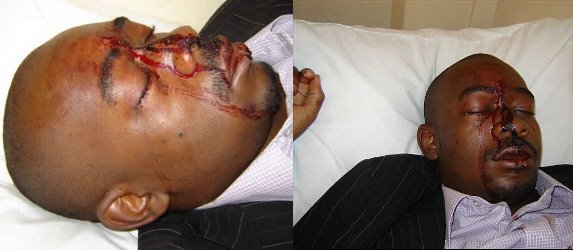
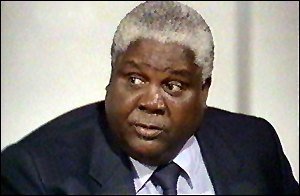



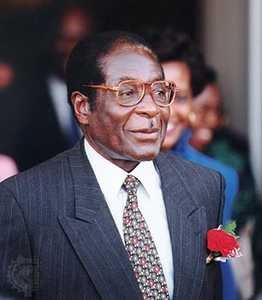

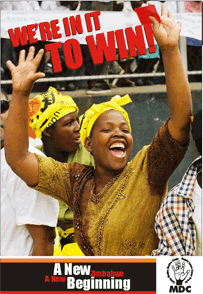

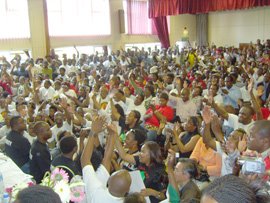




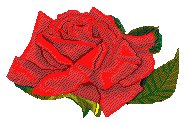

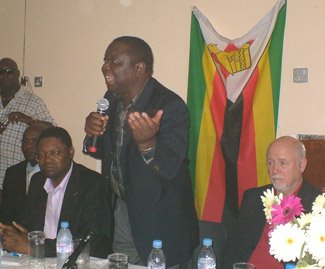

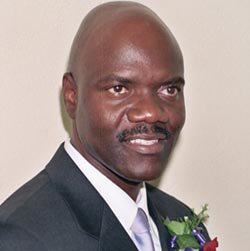


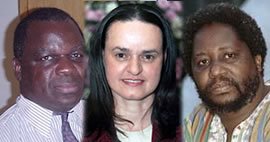




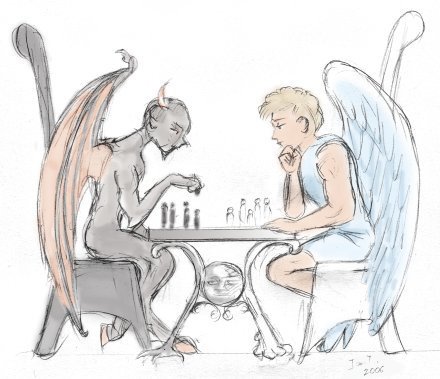

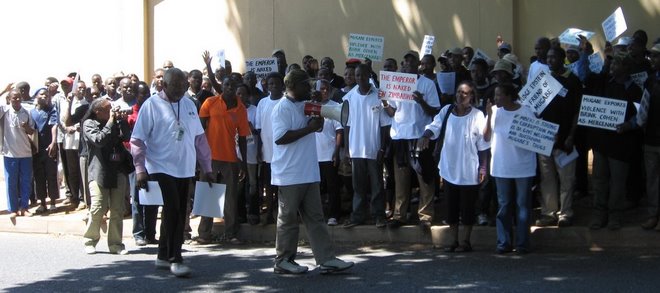
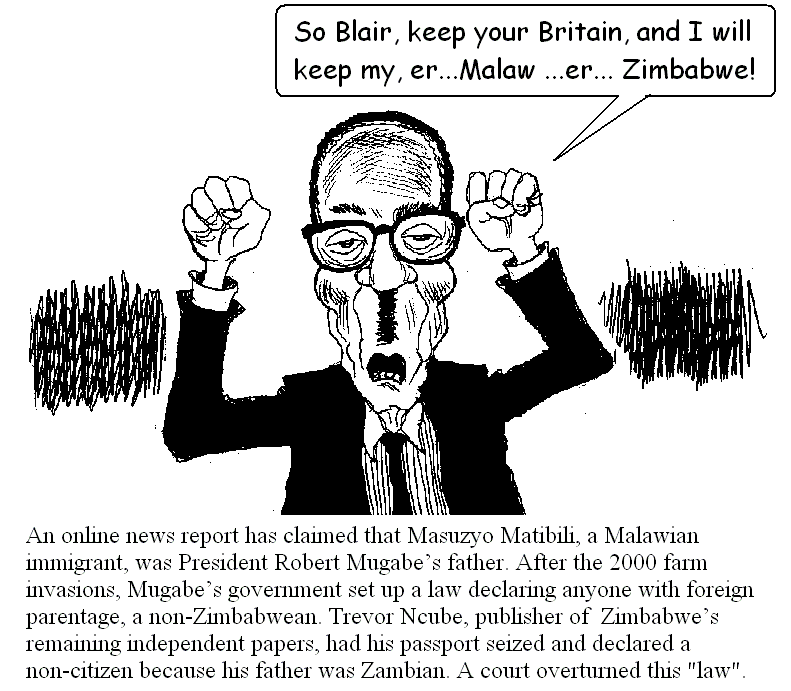
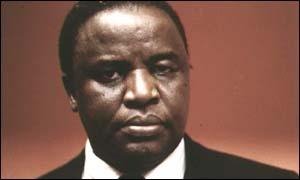
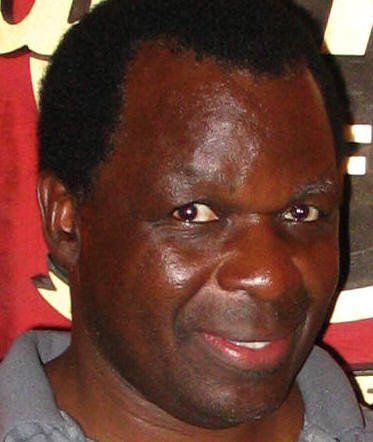





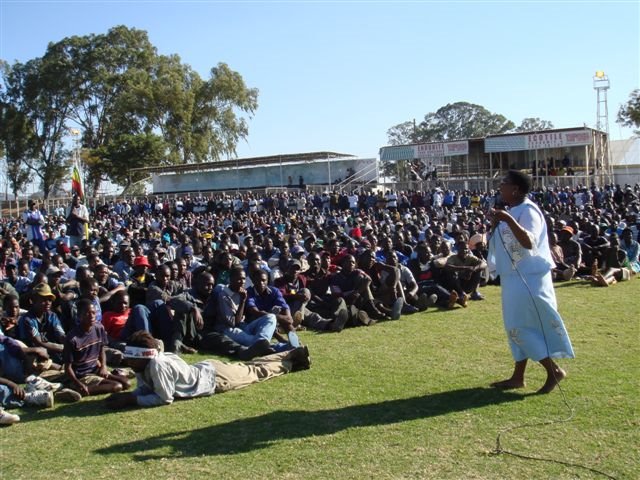

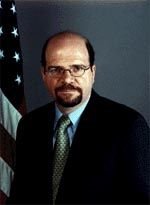

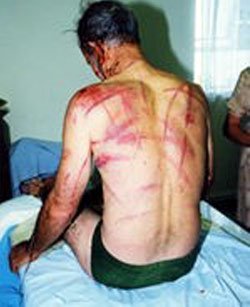
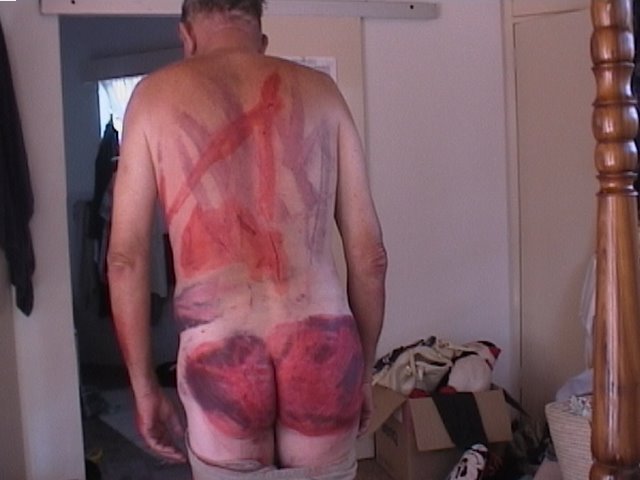

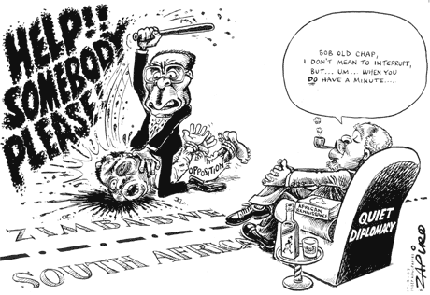
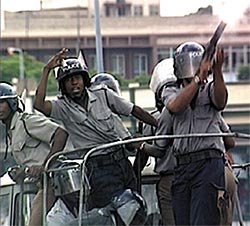
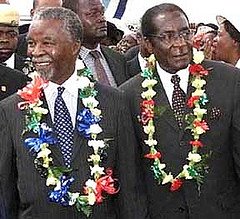
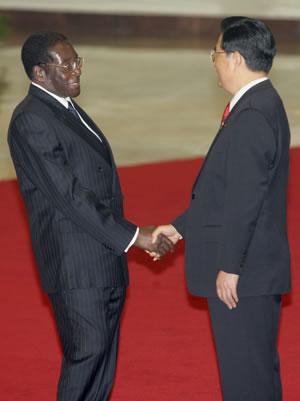





No comments:
Post a Comment